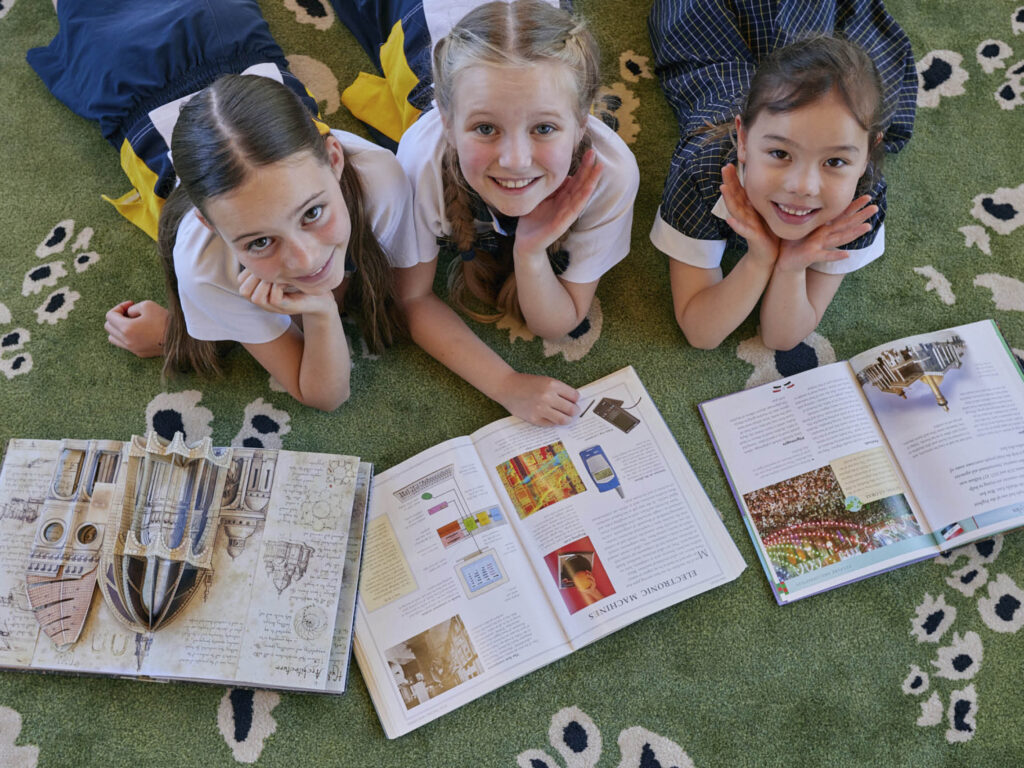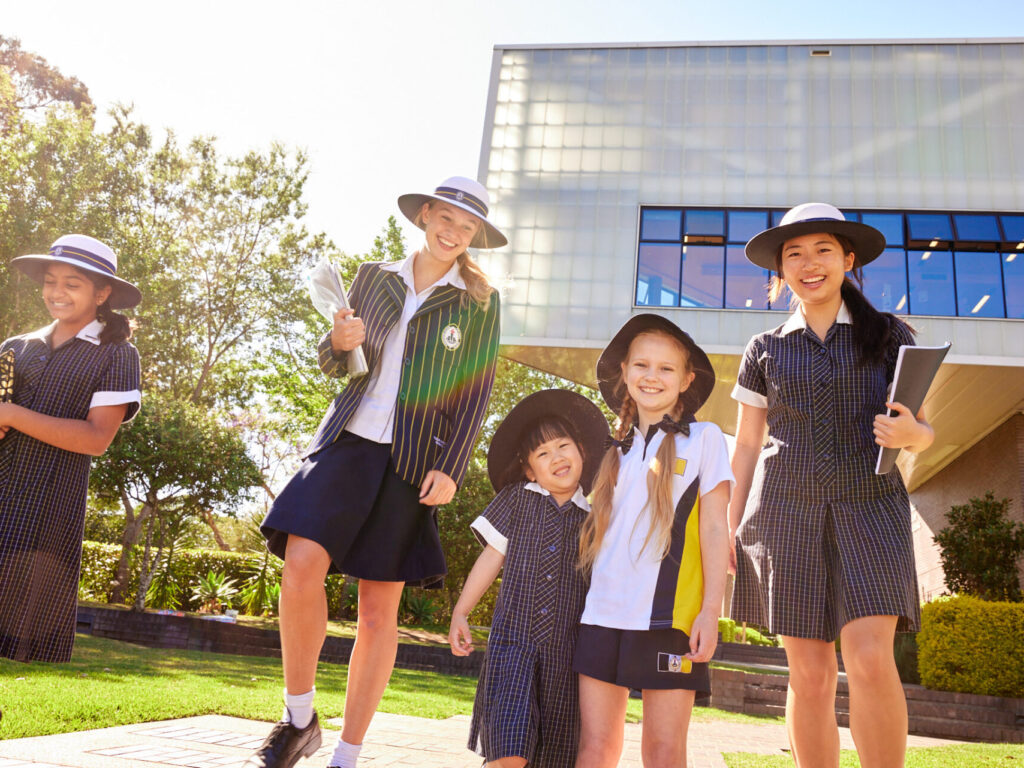Following the highly-successful Ravenswood and Knox Student-Led Wellbeing Conference designed for senior students from schools across NSW, Ravenswood School for Girls and Knox Grammar School proudly launched the inaugural Years 7-9 Student-Led Wellbeing Conference in September.
Hosted at Ravenswood and with over 250 Year 7 students in attendance, the half-day Conference was developed in partnership with Knox and designed to deepen student engagement with Positive Education through authentic leadership opportunities and peer-to-peer teaching for those in the early years of their Senior School journey.
Modeled largely on the Senior student Conference – which had the theme Mental Toughness: The Power of Growth – the focus of the Years 7-9 Conference was Rethinking Challenges: A Recipe for Growth, which stimulated numerous ideas and honest conversations around resilience and wellbeing science.
The Conference was co-designed and co-led by mixed teams of Year 8 and 9 students from Ravenswood and Knox, and included an engaging primer activity, inspiring guest speakers and student-led workshops.
The day opened with a dynamic drumming activation involving over 300 individual drums, which set the tone for collective energy and collaboration. The drumming also served as a metaphor for the power of shared rhythm, support, and belonging when facing challenge together. This was followed by inspiring keynote addresses by David Bott and Matthew Johnstone. David Bott, an expert in wellbeing science and co-founder of The Wellbeing Distillery, encouraged students to embrace challenges with curiosity and optimism. Matthew Johnstone, the author and illustrator of Here’s a Thought, used storytelling and live illustration to guide students through strategies for managing worry and finding ways forward.
Years 8-9 students collaboratively developed and delivered eight different student-led workshops to groups of Year 7 students from the two schools. The content of each workshop was drawn from the Peer Support ‘Rethinking Challenges’ and the Ravenswood Positive Education curriculum. The workshops used scenarios and group discussions to explore key concepts such as perseverance, empathy, optimism, communication, critical thinking, and how thoughts can influence behaviour during challenging times.
Resilience was a key topic throughout the Conference, with students encouraged to consider and embrace the ‘Five R’s’, namely Reflect, Reframe, Regroup, Rebound, and Revitalise. These attributes provided students with a toolkit to support them to have a healthier and well-rounded approach to life in and outside of School, including the habit of focusing on positives, adapting to change, reacting with a positive mindset, and fostering wellness through positive sleep and diet habits.
Recess and lunch breaks included Positive Education and wellbeing activation stations, such as the Ganbatte Strengths Bike, Gratitude Station, Resilience Jars, and a range of outdoor games such as juggling, chess, the Resilience Row Challenge and card games. The activation stations created an inviting wellbeing environment for students from Ravenswood and Knox to socialise and connect meaningfully.
Acting Principal Ms Sarah Guy said, ‘It was so encouraging to see the tremendous level of student engagement, collaboration and agency as our Year 8 and 9 students guided their younger peers through practical strategies and meaningful conversations around wellbeing. Their impressive depth of understanding reinforces the value of our commitment to Positive Education and student-led learning experiences at Ravenswood.’
As a multi award-winning school in the field of Positive Education and student wellbeing, Ravenswood is committed to student agency, positive psychology, and innovative peer-led teaching models. The Years 7-9 Student-Led Wellbeing Conference not only empowered students to become active contributors to the wellbeing culture of the School, but also built valuable skills for students in leadership, collaboration and communication, enabling greater confidence, reflection and positive peer impact.




















